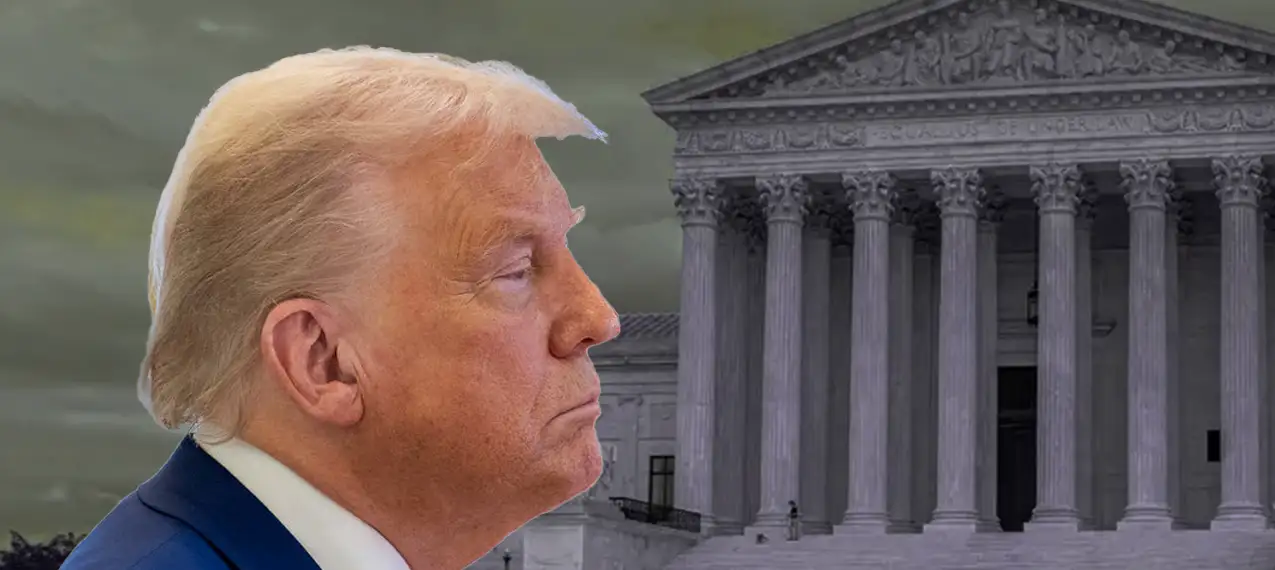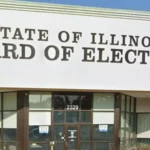
On May 15, the U.S. Supreme Court heard oral arguments in Trump v. CASA, Inc., a consolidation of three cases involving President Trump’s January 20, 2025, Executive Order ending birthright citizenship.
While much of the media attention has focused on the sensational constitutional questions, the Court was not asked to opine on the legality and constitutionality of the Executive Order. Instead, the question presented to the Court is whether, and to what extent, district court judges have the power to issue nationwide, universal injunctions barring the Trump administration from enforcing Executive Orders. Solicitor General D. John Sauer, representing the Trump administration, argued in favor of limiting lower courts’ use of equitable powers to issue universal injunctions. New Jersey Solicitor General Jeremy Feigenbaum, representing various states that had sought to enjoin the executive order, argued in favor of universal injunctions. Kelsi Corkran, a law professor at Georgetown University, represented associations and individuals who claimed to be harmed by the Order.
One “Injunction to Rule Them All”?
The extent to which a district court judge may issue nationwide injunctions is an issue ripe for review by the nation’s highest court. One of the most obvious forms of judicial overreach has manifested using nationwide injunctions—powerful legal tools that effectively halt the actions of an entire branch of government before a case is fully argued. Universal injunctions encourage forum-shopping, distort class certification, and unduly pressure the Supreme Court’s emergency docket. Their unprecedented use by district courts demanded the Supreme Court’s attention.
The Justices on Universal Injunctions
During oral arguments, several of the Court’s ideological conservatives appeared to be willing to limit the power of district court judges. Justice Alito noted that federal judges “are vulnerable to an occupational disease, which is the disease of thinking that I am right and I can do whatever I want.”
Justice Thomas was characteristically pointed during oral arguments, but his few comments also suggested a willingness to rein in universal injunctions. He was concerned with universal injunctions’ novelty and alluded to recent legal scholarship that dates the first universal injunction to 1963[1].
On the other hand, Justice Jackson appeared concerned with the practical consequences of eliminating universal injunctions. She feared a “catch me if you can regime” where “everybody has to have a lawyer and file a lawsuit in order for the government to stop violating people’s rights.”
The Solicitor General in turn responded that Justice Jackson had it backwards: “I think the ‘catch me if you can’ operates in the opposite direction, where we have the government racing from jurisdiction to jurisdiction, having to clear the table in order to implement a new policy.”
Justice Barrett appeared concerned by Solicitor General Sauer’s refusal to give a straightforward answer as to whether the government would honor a circuit court’s decision in this case. While acknowledging that the government “generally” respects circuit court precedent and will obey a circuit court’s judgments within their jurisdiction, Solicitor General Sauer reserved the government’s right to not follow circuit precedent.
The Justices on Birthright Citizenship
Although the Government’s application to the Court emphasized the nationwide injunctions issue over the merits of their birthright citizenship argument, the Justices appeared reluctant to debate the judiciary’s proper equitable remedies in a vacuum.
The Court’s liberal Justices seemed adamantly opposed to the administration’s arguments on the merits of birthright citizenship. Justice Kagan repeatedly prefaced her questions by asking the Solicitor General to assume the Government’s arguments on the merits were “dead wrong.” Justice Sotomayor accused the administration’s position as contradicting “four established Supreme Court precedents.”
Concerns about the practicability of allowing differing citizenship rules among the states also featured prominently in the progressive Justices’ and Mr. Feigenbaum’s discussions. Because oral arguments focused on the validity of the nationwide injunction rather than the merits of birthright citizenship, Mr. Feigenbaum mostly avoided the Fourteenth Amendment questions. He did assert that birthright citizenship in its current form has been previously affirmed by federal statute and Court precedent. He also delved into the novel challenges of managing federally mandated, state-administered social services that hinge on citizenship, including Medicaid. His arguments about the “negative externalities” that would come from rule gaps in different states were compelling and well taken by the Justices.
This concern may have even extended to the conservative wing of the bench as well. Justice Kavanaugh queried the practical effects of ruling in the Government’s favor. He asked, “what do hospitals do with a newborn, what do states do with a newborn” if that baby’s citizenship is suspect under the Order? The Court’s other conservative Justices said little on the merits of the administration’s birthright citizenship arguments.
Oral arguments suggested that a majority of the Justices are unlikely to either eliminate universal injunctions or leave them entirely unrestricted. We do not expect a substantive discussion of the Fourteenth Amendment as it relates to birthright citizenship at this early stage in the case. If the Justices do not rule on the merits of the administration’s birthright citizenship arguments, expect the issue to return to the Court in a future term.
Details of the Forthcoming Decision
We expect the Supreme Court to issue its injunction ruling by the end of the term in June. Decisions from the Court’s emergency docket are not required to include any explanation or reasoning. Despite this, the Court will likely issue an opinion limited to the legality of district courts to issue universal injunctions. It is likely that at least five Justices vote to limit the power of district courts to issue this kind of sweeping relief.
Footnotes
[1] Legal scholarship often traces the first nationwide injunction to Wirtz v. Baldor Electric Co., 337 F.2d 518 (D.C. Cir. 1963).
SUPPORT LANDMARK LEGAL FOUNDATION
We are truly facing existential threats to our individual rights and liberties, the Constitution, and our national character. If unchallenged, this assault on our very way of life will ruin our great nation. With your financial and moral support, Landmark is not going to let that happen without a fight. Will you join us?
JOIN OUR MAILING LIST
Never miss an update from Landmark Legal Foundation as we continue the fight to preserve America’s principles and defend the Constitution from the radical left.





